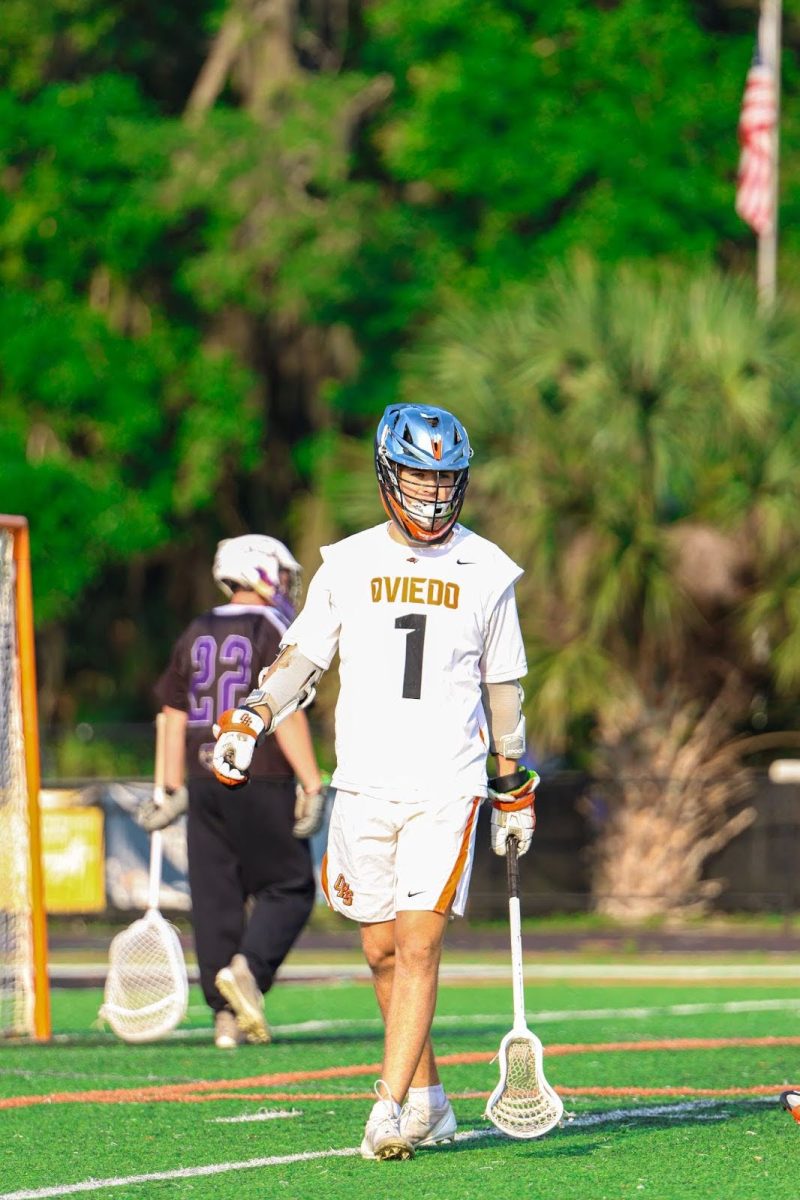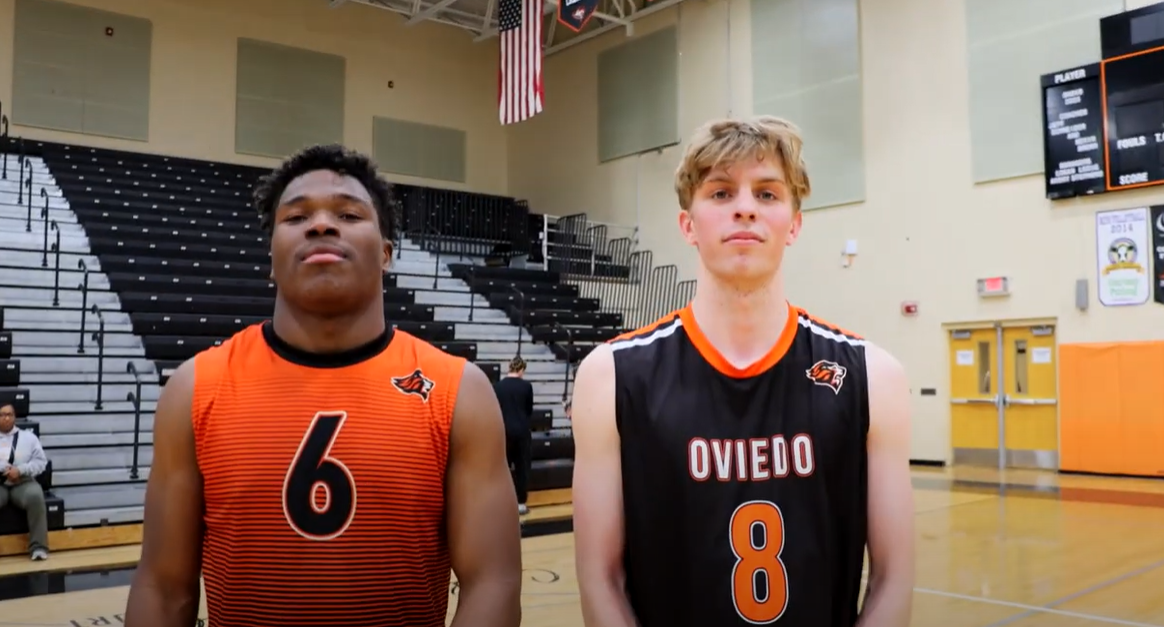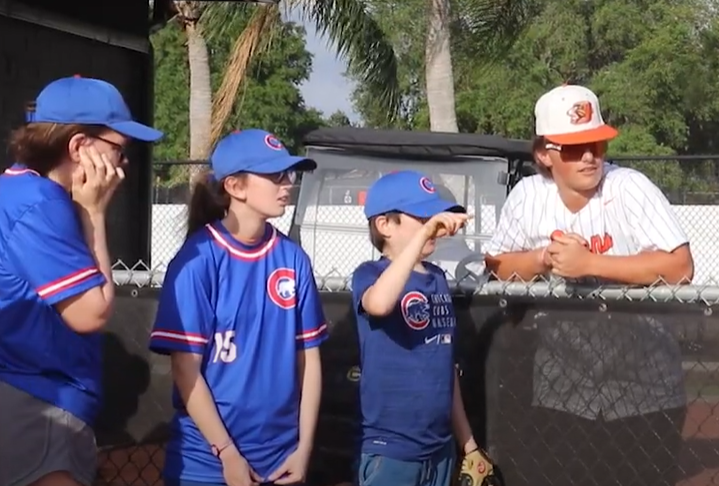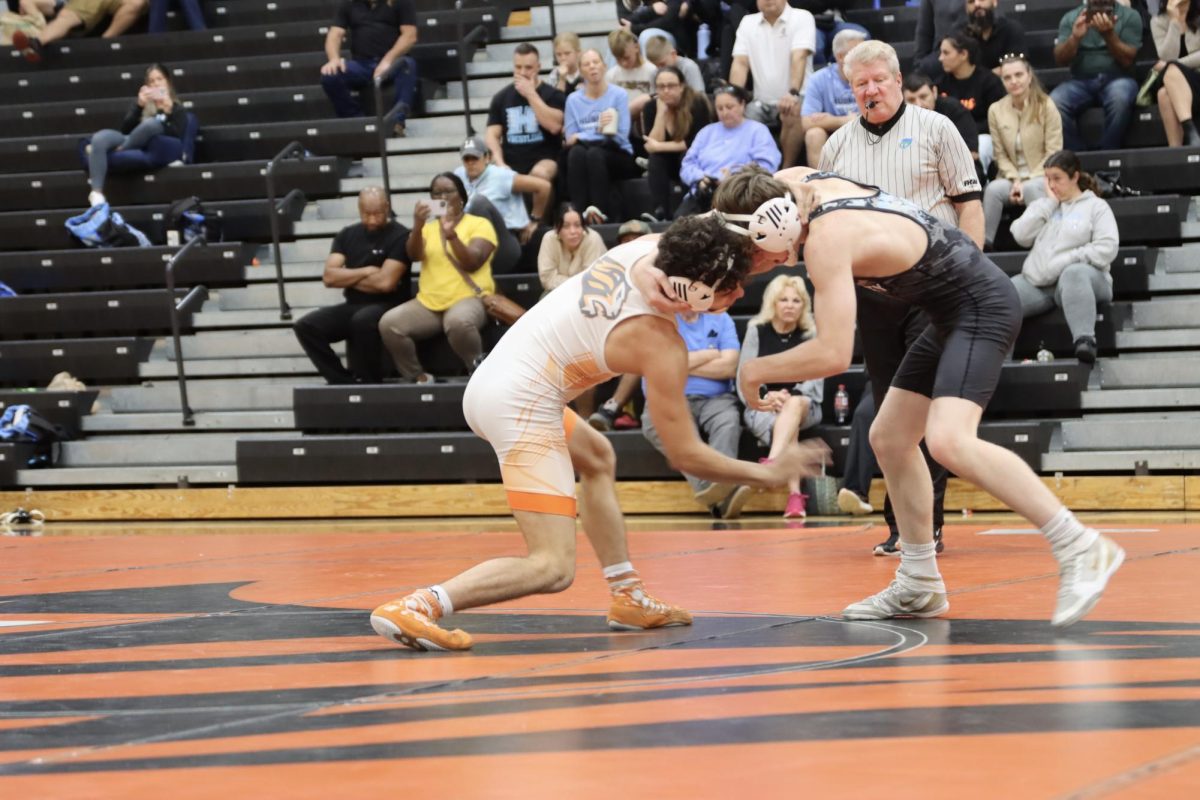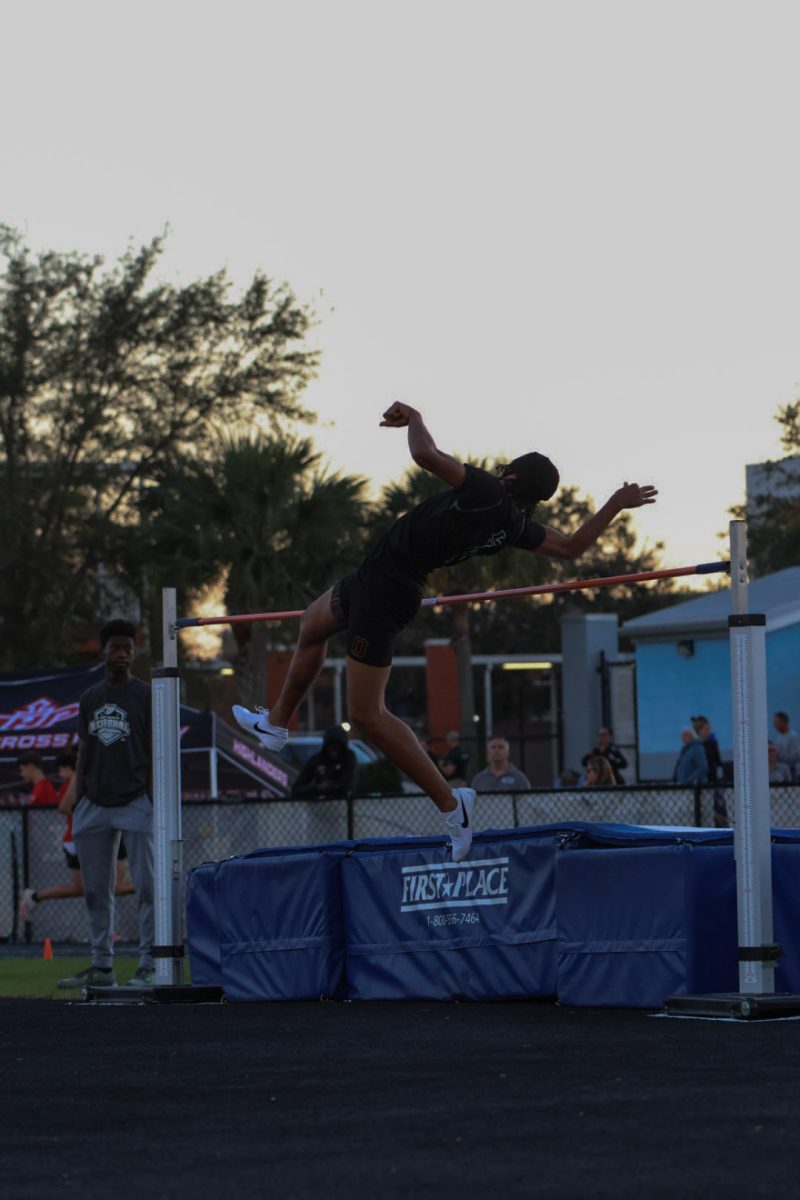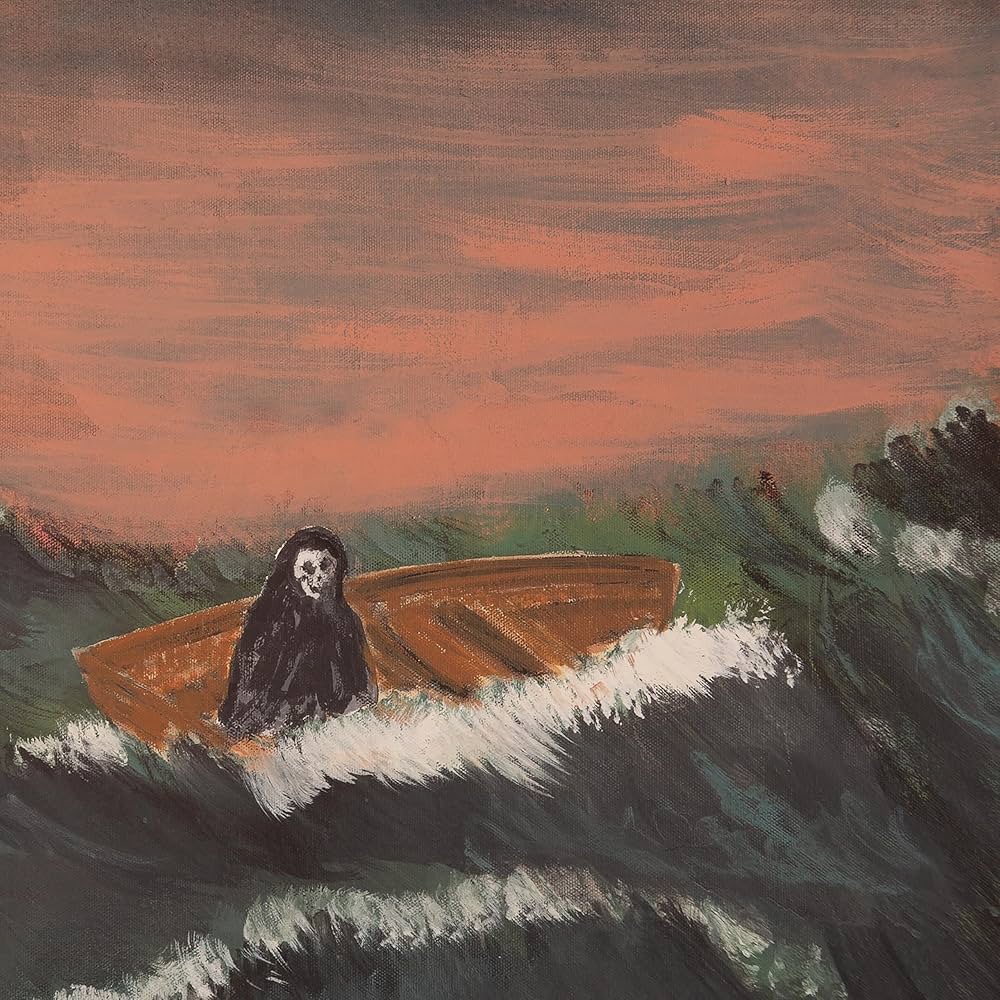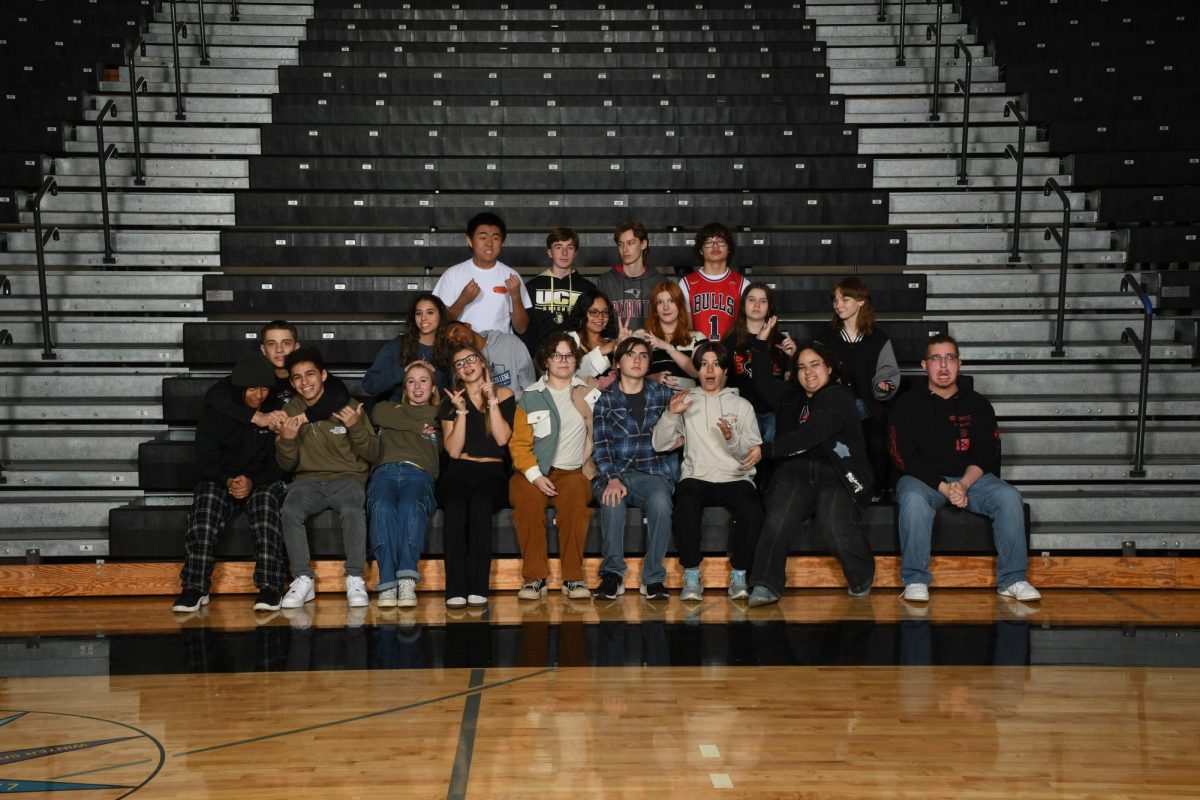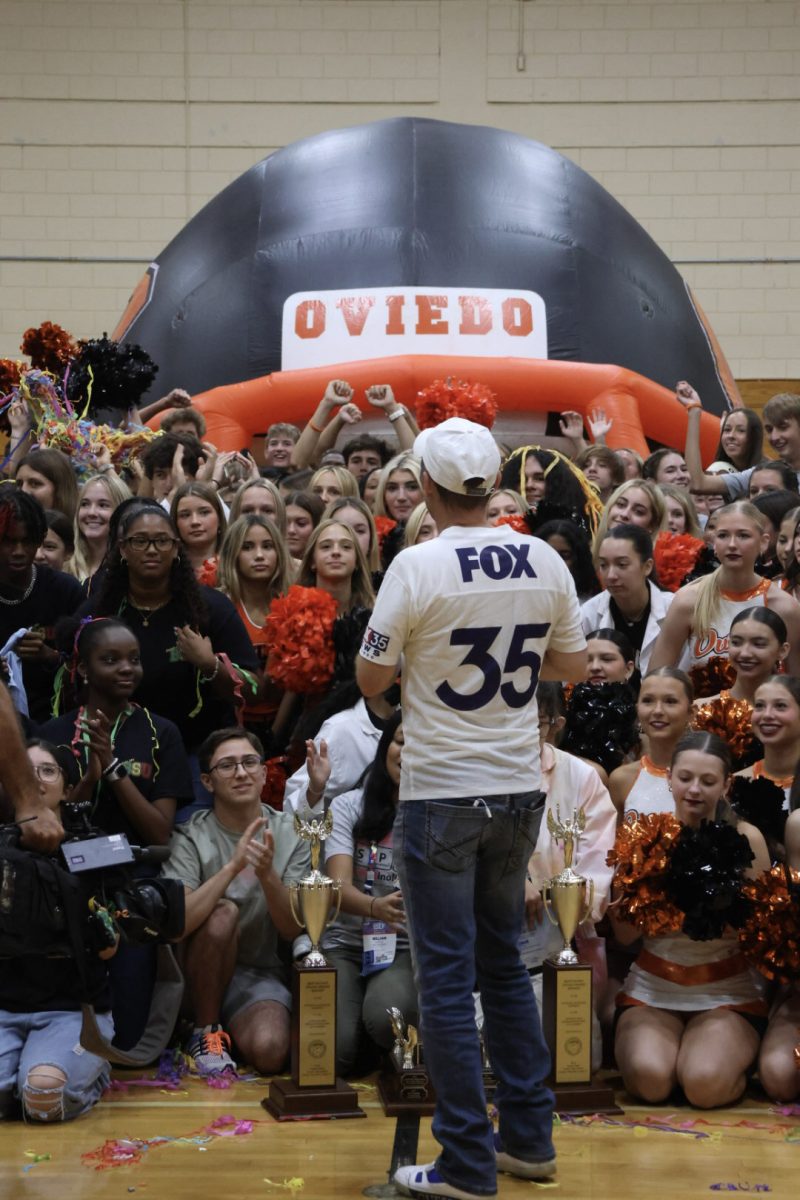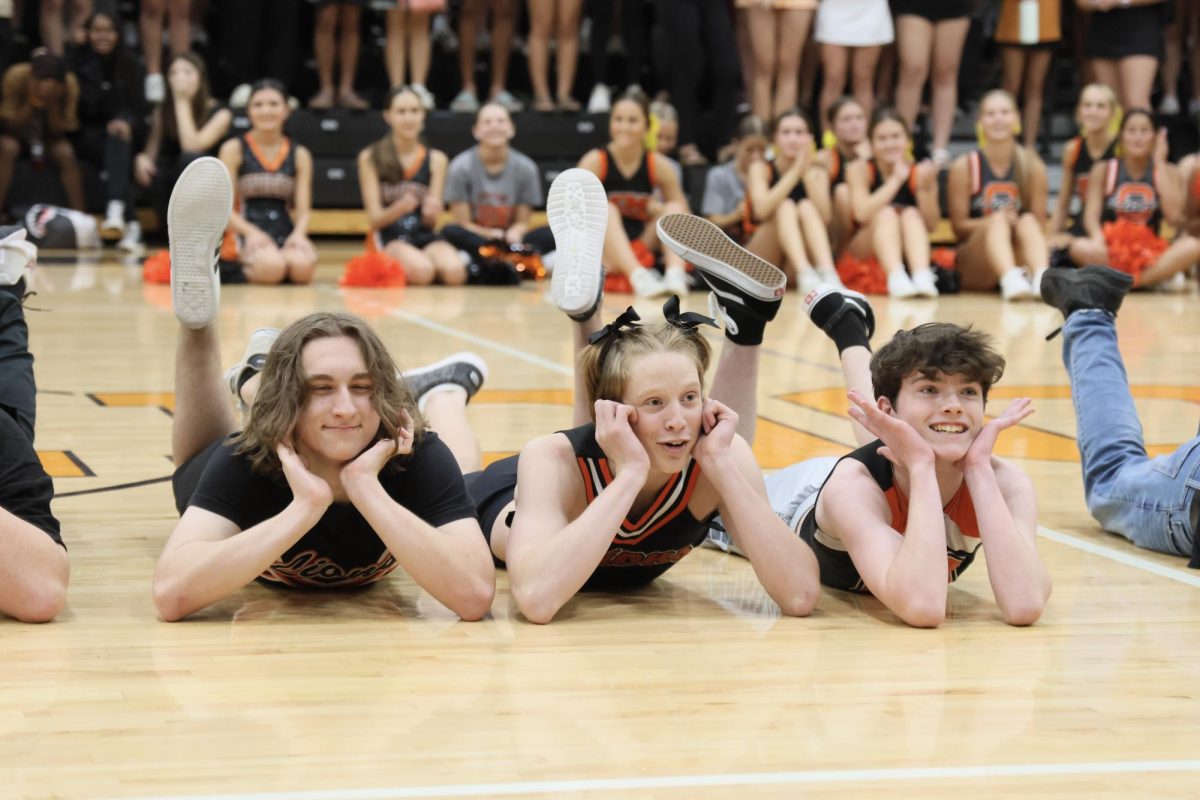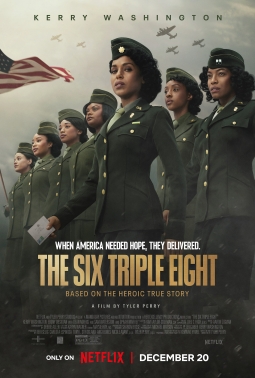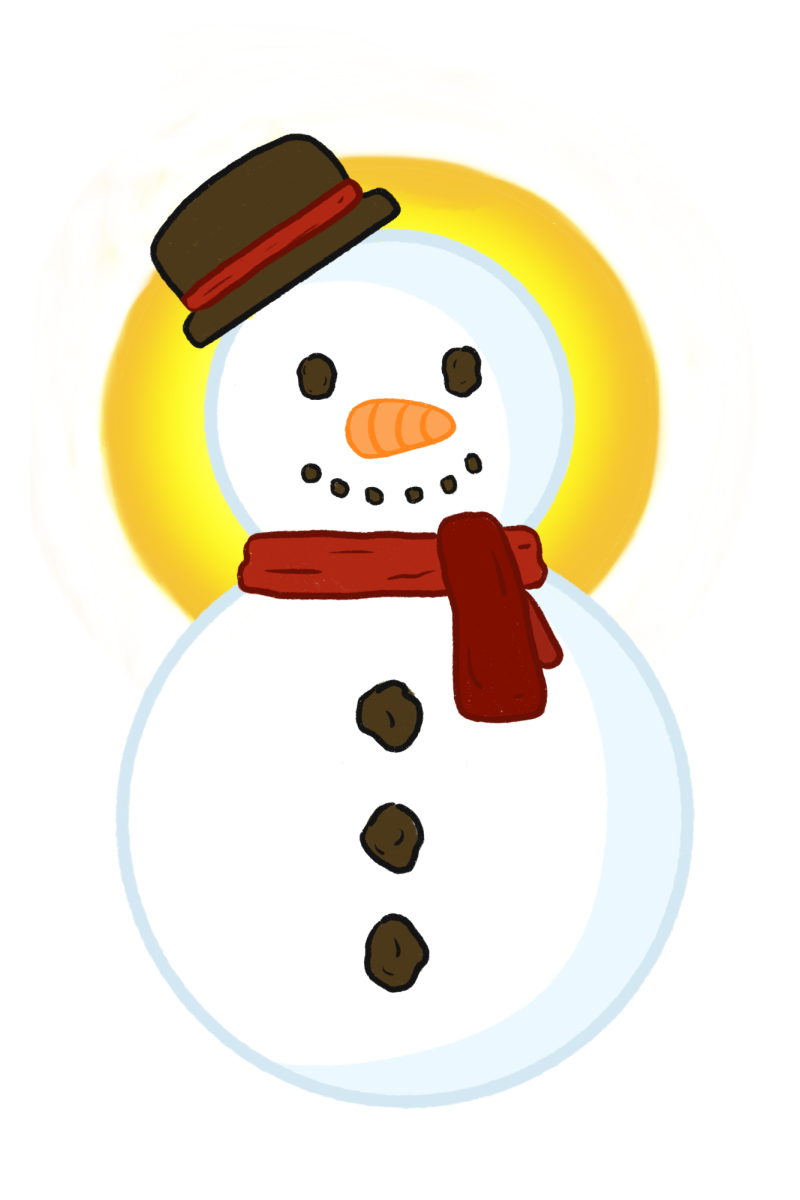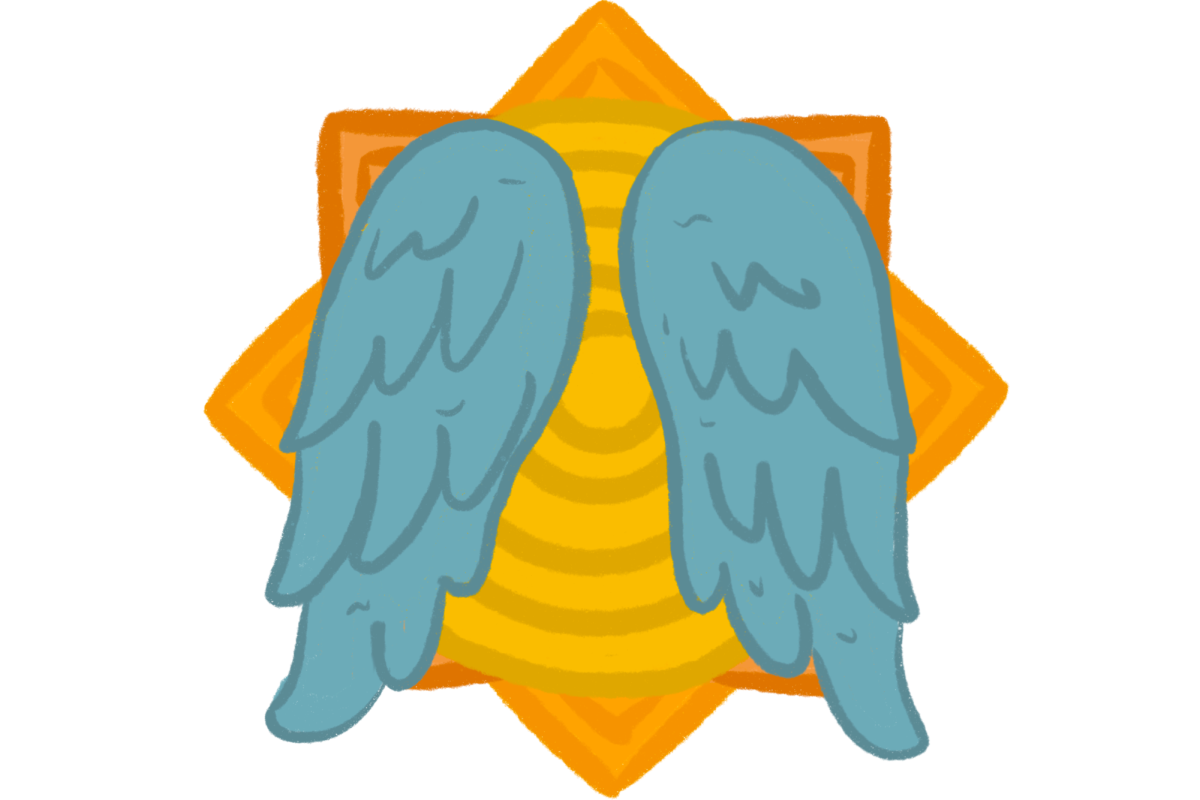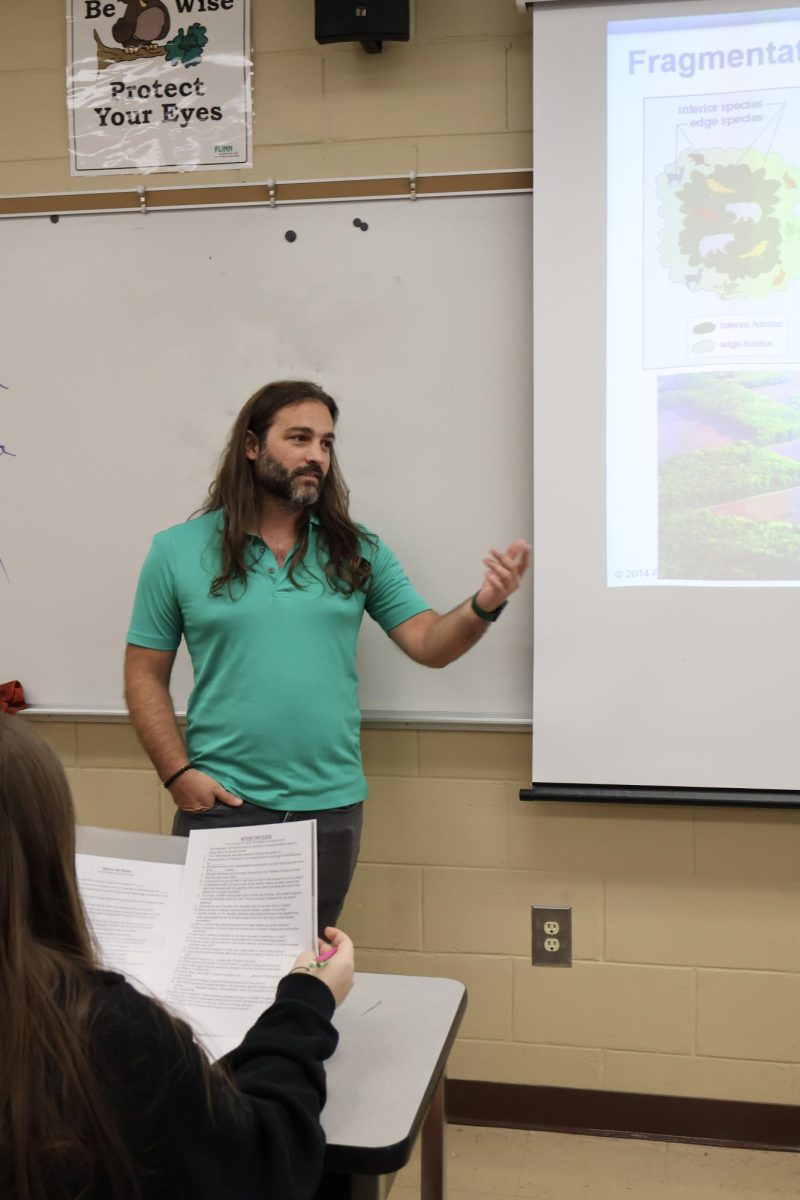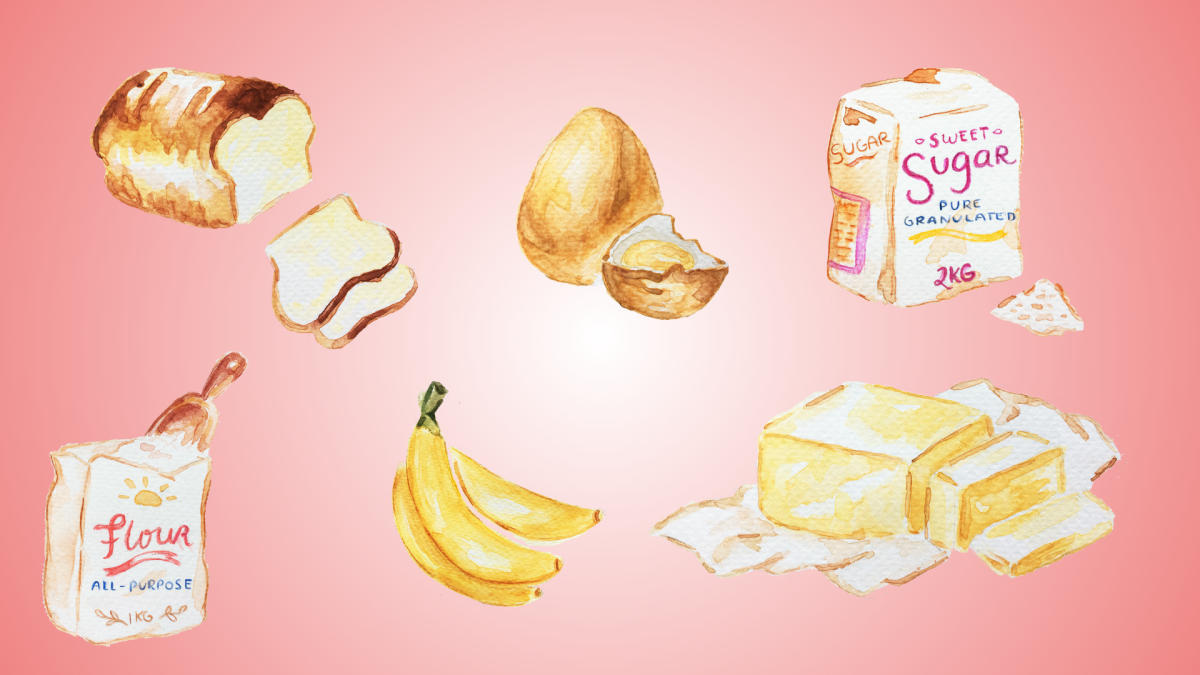Heat warning signs flash on phone screens. News of yet another forest fire covers every front page. A hurricane destroys an island, hurtling a plethora more in its direction every year. The news is not new; the effects of climate change have become especially apparent in the last few decades. Seemingly out of grasp to most, many students and staff members in Oviedo High School realized change lies in their hands. Both Advanced Placement Environmental Science and the Environmental Club educate students on the dire condition of the natural world, encouraging innovation.
AP Environmental Science focuses on the ecologically intertwined relationships that occur in nature, along with human impact on that ecosystem, such as fossil fuels, its alternatives, and current research on becoming independent of its use. Its teacher, Benjamin Hogue, hopes to inspire his students to be mindful of the biosphere when choosing their career, whether directly linked to the class or not.
“A lot of the class just focuses on awareness, so that students, when they go on to the real world and have money and spend it or have different careers, can choose pathways that hopefully make the world a better place,” Hogue mentioned.
Taylor White, junior, believes AP Environmental Science focuses on relevancy, rather than the broadness found in a regular biology class. The timeliness of climate change and specificity of the course helps them understand the state of the world now, rather than the general characteristics found in biology.
White finds the importance of teaching the class to be about how climate change can “affect [other] species, not just us, but plants and animals.”
Environmental Club President and founder, senior Katelyn Brennan, started the club to expose students to the issues nature faces and recognize that it does not escape the confines of a classroom.
At first, Brennan’s knowledge of the topic was limited. The club simultaneously informed others and themselves.
“Before I made the club, I didn’t know very much about the environment. It was kind of like, like ‘Oh, there’s climate change, there’s recycling’ but honestly, I kind of thought it wasn’t my problem, until I was a lot more exposed to the world.”
But upon getting more involved with it, Brennan understood how to help the Earth. Research brought Brennan to the place they are today, with the AP Environmental course guiding them along the way.
“The class does help me learn a lot more about the environment, so it helps me look out for what we should be teaching in my club, because we have presentations [I make],” they stated.
The purpose of the club is similar to the AP class; Kaitlyn Brennan cares about the people behind it, not necessarily just the club.
“I do it to impact the world, of course. But I do it to impact individuals and inspire them to have that motivation to have that personality and that strive to take care of other things.”
Katelyn Brennan realized it is not about the big picture, but the details. An individual moment can snowball into something remarkable.
“For example, if I see a starfish up on the shore, I’m gonna throw it in,” Brennan said. “Sure, I’m not helping the whole world, but I help that singular starfish.”
The club has enabled a point system. If a member takes the time and care to help their community, they get a point. This pushes them to positively influence the environment long term.
“I feel like it has made an impact on my members outside, because it inspires them to take that extra step and do something that doesn’t involve the club.” Brennan observed. “It involves themselves as an individual.”
A part of the club is to care for the community. Not only is teaching important, but actively participating in cleaning waste combats pollution, a significant factor in climate change.
“We do park clean-ups every now and then. It usually takes about two to three hours to clean it up,” Kaitlyn Brennan declared.
Benjamin Hogue also noticed that other organizations, not only the Environmental Club, have participated in the fight for the natural world. Taylor White’s role in their club is a prime example of that.
In the Student Government Association, they are involved in the care of ecological footprint. They even talk about the environment several times a week.
“Well, I’m also in leadership, so we recycle and go around, see most of the campus recycle, see some people eat cleaner, and just live a cleaner life,” White noted.
Humanity has already come a long way. Not only has recycling become more common, but the reuse of water bottles and even the celebration of Earth Day show massive societal development.
“You see a lot of products that are labeled green, or companies who are trying to reduce their carbon footprint. They advertise it, and people actually buy their products based on those sorts of situations,” Hogue pointed out.
However, there is still a lot to be done. “The United States is behind in comparison to other countries,” Hogue said, discussing the U.S. hitting a ranking of 43 on the Environmental Performance Index last year, with an incredibly low place of 101 in the category ‘Climate Policy’. To put that into perspective, there are 180 entries registered in the Index.
There are solutions and ways to help. Even small actions contribute to the colossal change needed in the world.
Hogue recommended, “Trying to think about your overall lifestyle and doing things like reusing products, buying products that are more sustainable, or even looking into companies that are more sustainable instead of one-use products is really helpful.”
Environmental education has a longstanding effect, even on Benjamin Hogue. His teaching career stemmed from an environmental science class he took in high school. It even caused him to pursue both his master’s and bachelor’s degrees within the environmental realm.
Climate change has reshaped the Earth and everyone on it. But modifications can be reversed.
“The coolest thing about nature is that a lot of times, it will course correct if we stop polluting or if we stop changing things.”

![Prom king Colin Napier and queen Leah Hopkins dance the night away during the Golden Gala on April 26th. Prior to the prom, the Student Government must make many preparations over the course of months in order to ensure it goes off without a hitch. However, their work eventually pays off when it comes time for the dance. “We set up [the prom] the day before, and it’s horrible. We’re there for a very long time, and then we get our beauty sleep, and then we get ready for prom the next day,” Aubrie Sandifer said.](https://oviedojournalism.com/wp-content/uploads/2025/05/Oviedo-197-800x1200.jpg)
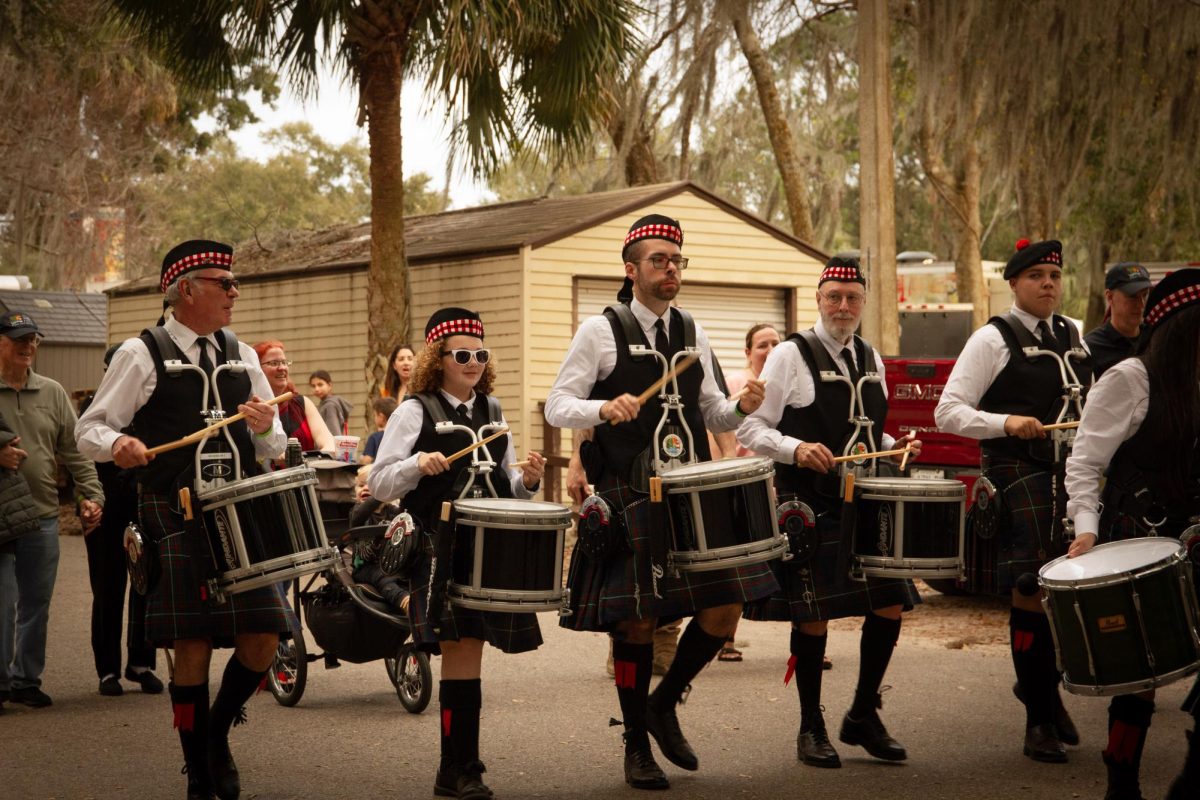
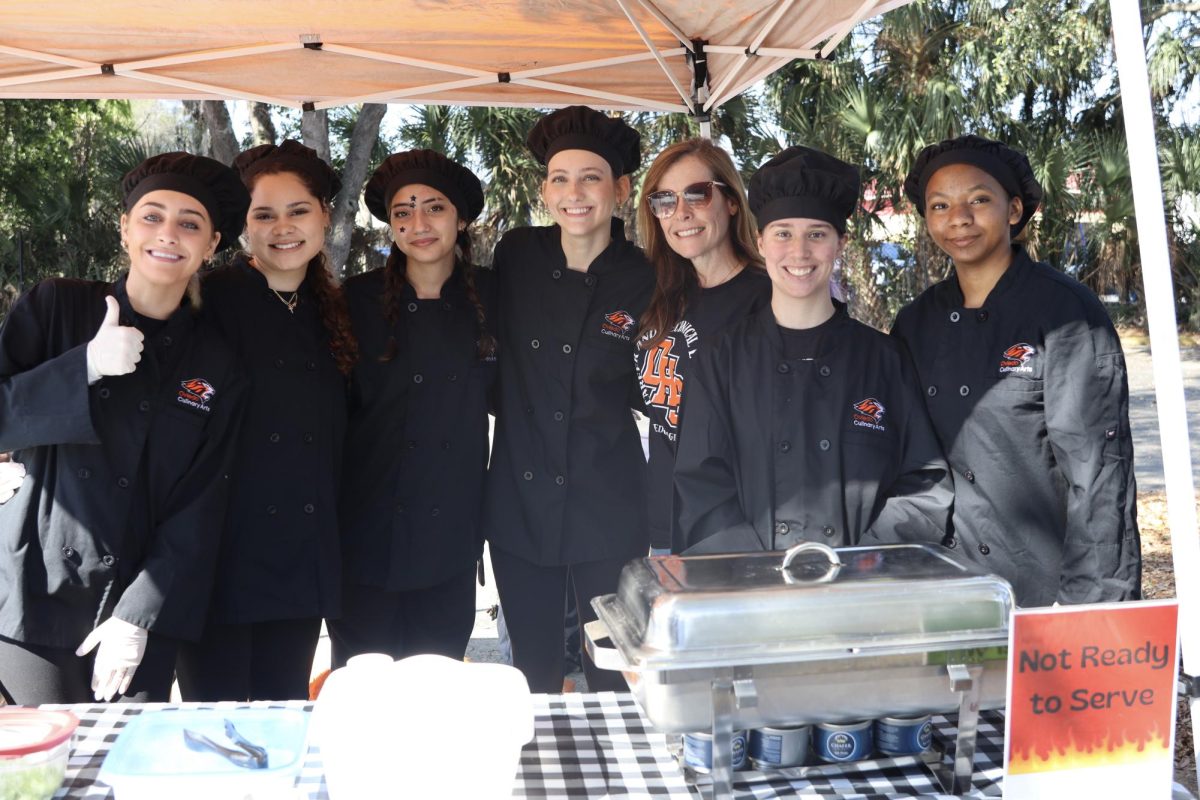
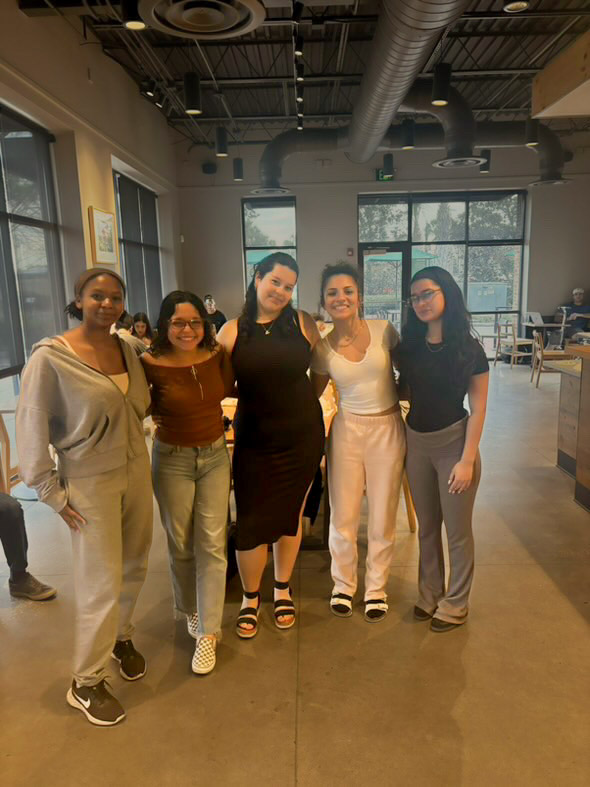

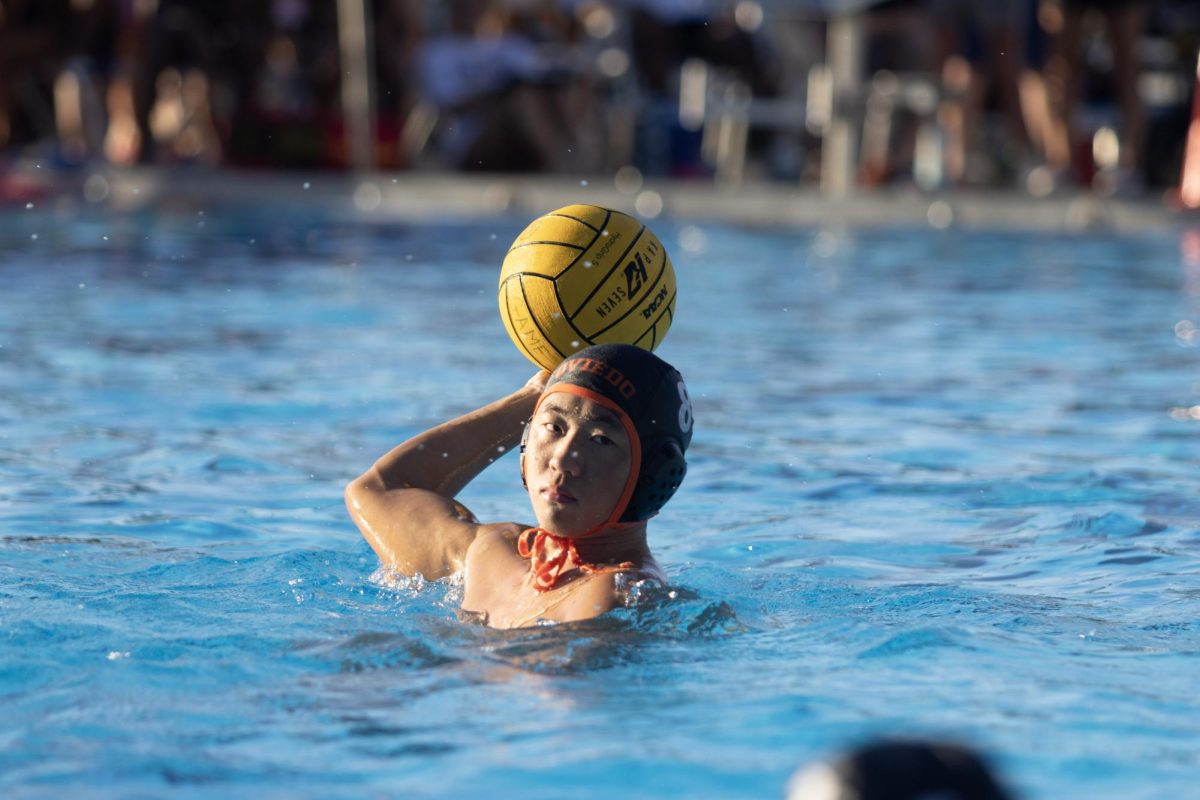

![Hopkins at Honor Grad with golf coach John McKernan. As Hopkins’ golf coach for the last two years he has seen Hopkins’ growth as a player and person along with their contributions to the team. “[Hopkins] has just been really helpful since I took [the golf team] over, just anything I wanted to do I ran by [Hopkins],” said McKernan.](https://oviedojournalism.com/wp-content/uploads/2025/05/B66A7760-800x1200.jpg)
